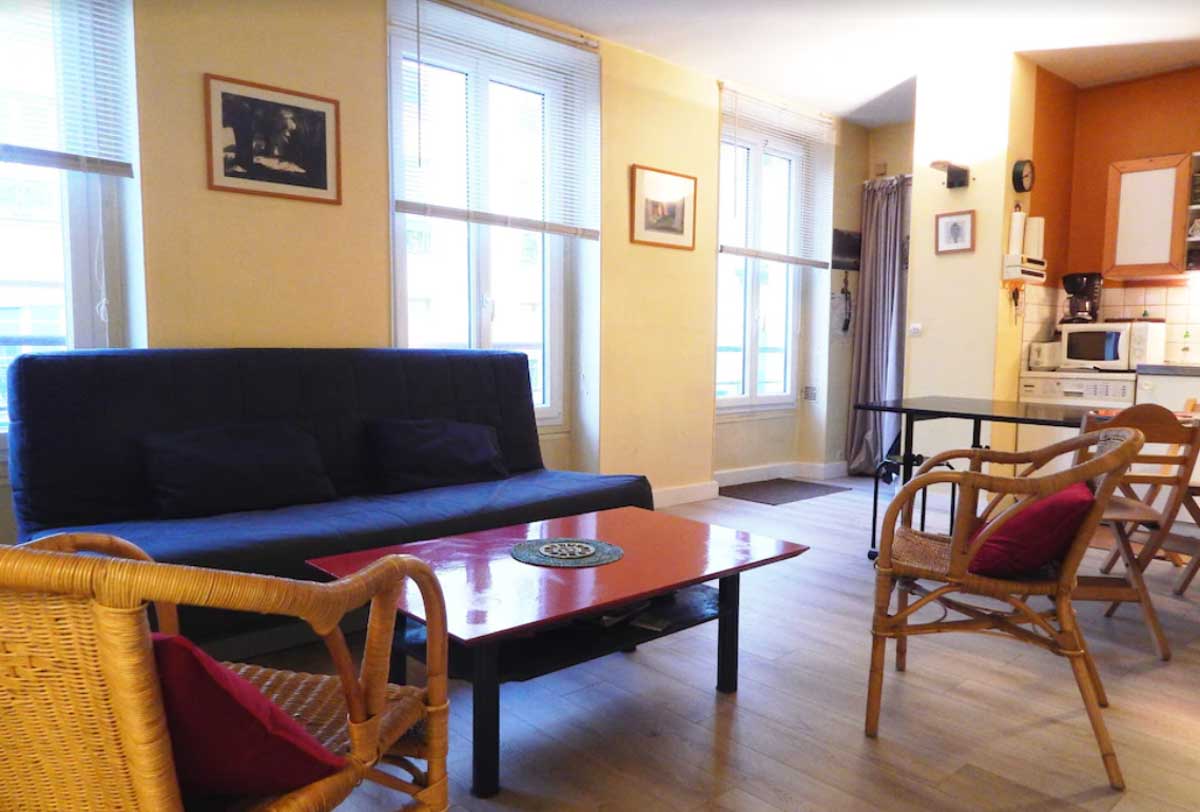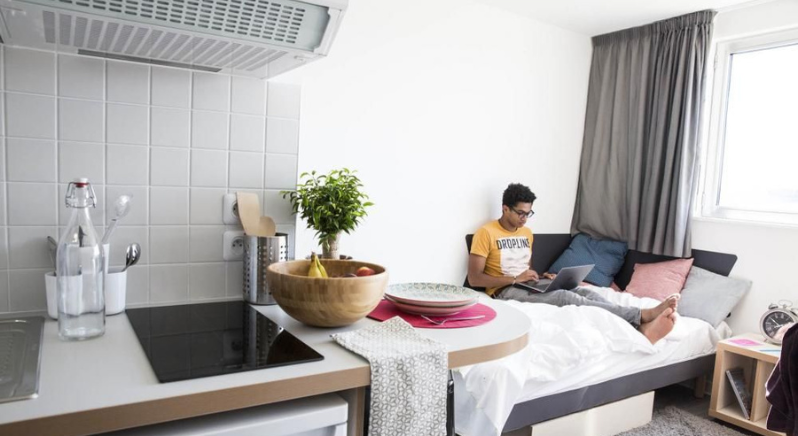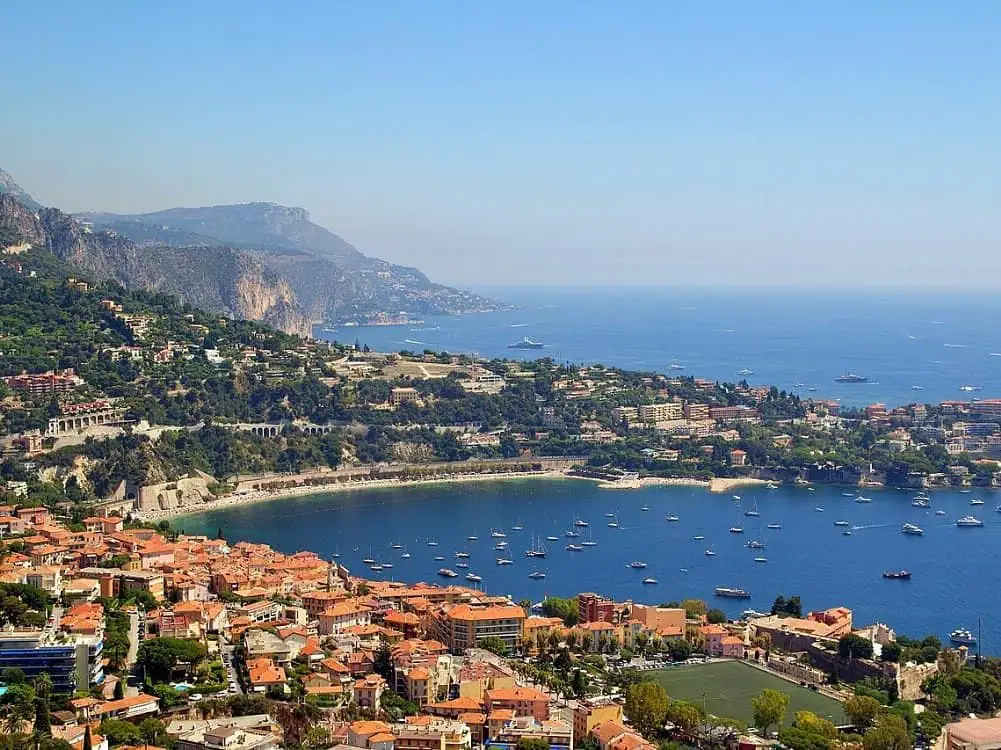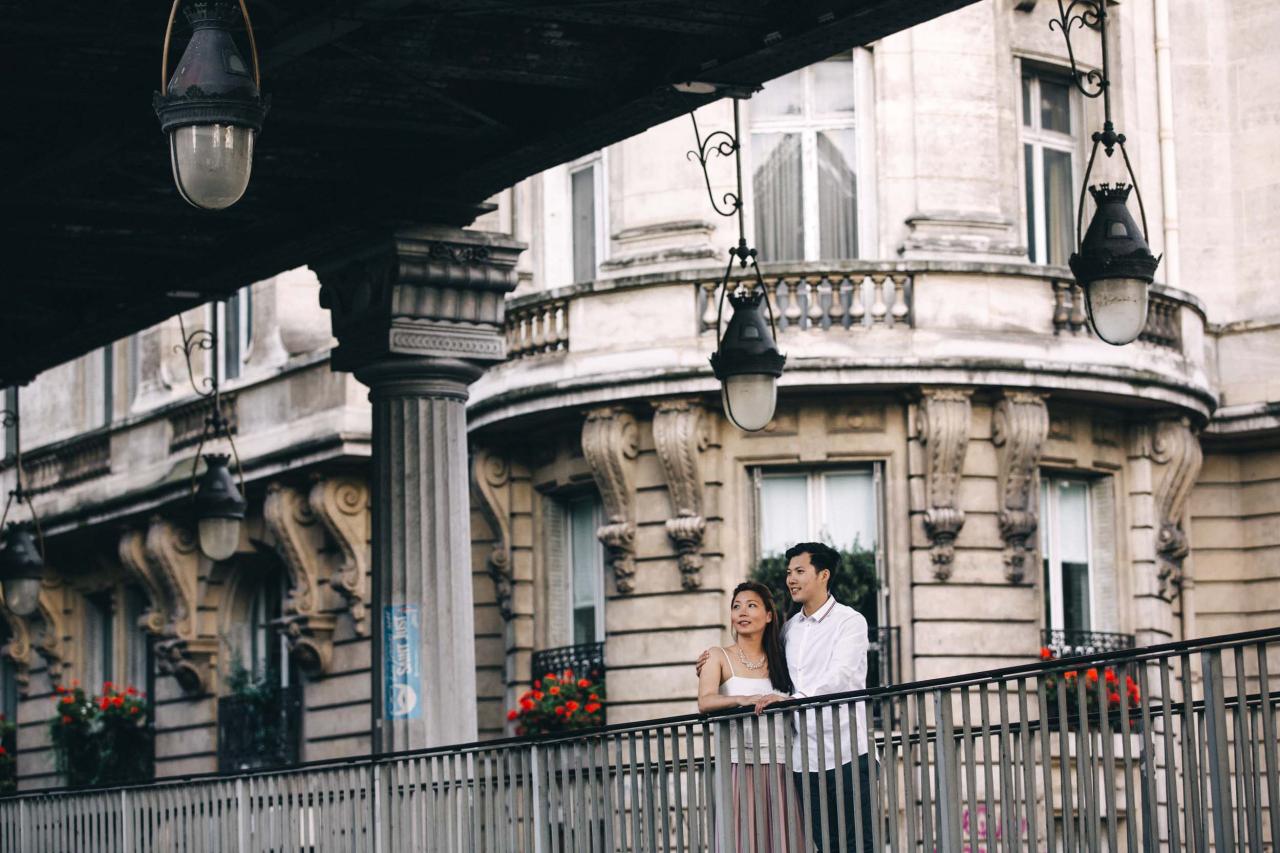Alternative accommodation options in central Paris offer a vibrant array of choices beyond traditional hotels. From charming guesthouses to cozy apartments, these unique options provide a deeper immersion into Parisian life, often at a more affordable price point. Discover the diverse range of experiences these accommodations offer, ranging from a quick weekend getaway to an extended stay.
This guide explores various alternative accommodation types, considering location, pricing, amenities, and booking processes. It also highlights the unique local experiences these options can provide, from exploring hidden cafes to connecting with the local community. Learn how to choose the perfect alternative stay in central Paris that suits your needs and budget.
Introduction to Alternative Accommodation
Alternative accommodation in central Paris encompasses a diverse range of lodging options beyond traditional hotels. These options cater to a variety of needs and preferences, often offering unique experiences and a more local feel. From stylish apartments to boutique guesthouses and unique co-living spaces, the alternative scene provides a distinct contrast to the often more standardized hotel experience.This shift towards alternative accommodation reflects broader trends in tourism and hospitality, emphasizing experiences over mere overnight stays.
This trend has been fueled by a growing desire for authenticity and personalized travel, alongside the ongoing need for cost-effective and flexible accommodations.
Examples of Alternative Accommodation Options
Alternative accommodation in central Paris offers a plethora of choices beyond the typical hotel. These options frequently provide a more intimate and immersive Parisian experience.
- Apartments for rent: Entire apartments or individual rooms within apartments are popular choices, offering more space and often kitchen facilities for self-catering. This allows for a greater sense of freedom and flexibility, particularly for longer stays.
- Boutique guesthouses: These smaller, independently owned establishments provide a more personalized touch, often featuring unique decor and a strong connection to the local community. They frequently offer a more intimate atmosphere than larger hotels.
- Co-living spaces: Co-living spaces offer a mix of accommodation and community features, providing a vibrant social environment while also offering private rooms. These spaces are especially appealing to young professionals or travelers looking for a dynamic atmosphere.
- Hostels: Hostels offer a budget-friendly option, ideal for solo travelers or groups, often featuring communal areas for interaction and socialising.
Key Differences Between Traditional Hotels and Alternative Options
Traditional hotels often prioritize standardization and large-scale operations, while alternative accommodations emphasize uniqueness and personal touches. The following table highlights some key differences:
| Feature | Traditional Hotels | Alternative Accommodations |
|---|---|---|
| Pricing | Often more expensive, particularly during peak seasons | Can be more affordable, especially for longer stays or non-peak seasons |
| Amenities | Generally standardized amenities (e.g., swimming pools, restaurants, business centers) | Amenities may be more tailored to the specific property or focus on local experiences (e.g., cooking classes, walking tours) |
| Atmosphere | Often impersonal and focused on efficiency | Usually more intimate and focused on creating a unique experience |
| Location | Can be strategically placed in tourist hubs, but not always | May be situated in less touristy areas, providing a more local feel |
| Check-in/Check-out | Typically strict check-in/check-out times | May offer more flexible options, particularly for longer stays |
Historical Context of Alternative Accommodation in Paris
The historical presence of alternative accommodation options in Paris reflects the city’s evolving tourism landscape. While hotels have always been a part of the Parisian hospitality scene, alternative options, such as privately rented apartments, have existed alongside them for centuries. The recent rise in popularity reflects a shift towards a more nuanced and personalized approach to travel and tourism.
Types of Alternative Accommodation
Beyond the traditional hotels, a plethora of alternative accommodation options caters to diverse needs and budgets in central Paris. These options offer unique experiences, often emphasizing local culture and immersion. From budget-friendly hostels to luxurious apartments, these choices provide a range of advantages and disadvantages that travellers should carefully consider.
Categories of Alternative Accommodation
Various categories of alternative accommodation exist, each with distinct characteristics. These options range from established guesthouses to newer platforms like VRBOs. Understanding these categories is crucial for making informed decisions.
Guesthouses
Guesthouses are typically smaller, family-run establishments offering a more intimate and personalized experience compared to larger hotels. They frequently provide a homely atmosphere and opportunities for interaction with local hosts. Guests often enjoy breakfast and other amenities included in the price.
Apartments
Apartments, available through various online platforms like Airbnb, represent a popular choice for longer stays. They provide more space and privacy compared to hotels, often with fully equipped kitchens, ideal for self-catering. The flexibility of an apartment can be beneficial for families or groups travelling together.
Hostels
Hostels are budget-friendly accommodation options, particularly popular with young travellers and backpackers. They offer shared rooms and often communal areas, fostering a social atmosphere. The communal aspect often results in cost-effective travel experiences.
VRBOs (Vacation Rentals by Owner)
Vacation Rentals by Owner (VRBOs) are privately owned properties, ranging from studios to spacious apartments, often available through platforms like Airbnb. They frequently offer more flexibility and comfort than hotels, with kitchen facilities and other amenities. The cost-effectiveness of VRBOs can be substantial, especially for longer stays.
Comparison Table of Alternative Accommodation Types
| Accommodation Type | Distinguishing Features | Pros | Cons |
|---|---|---|---|
| Guesthouses | Smaller, family-run, personalized experience, often with included breakfast. | Intimate atmosphere, interaction with locals, potential for authentic cultural immersion. | Limited space compared to apartments, less flexibility for larger groups. |
| Apartments | Self-catering options, full kitchens, suitable for longer stays. | Space and privacy, flexibility, potential cost savings for self-catering. | May lack amenities found in hotels, cleaning responsibilities. |
| Hostels | Shared rooms, communal areas, social atmosphere. | Budget-friendly, social experience, meeting fellow travelers. | Less privacy, shared facilities might not always be spotless. |
| VRBOs | Privately owned, varying sizes, kitchen facilities. | Cost-effectiveness, flexibility, potential for more space than hotels. | May lack hotel services, potential for inconsistent quality depending on the host. |
Location and Accessibility
Alternative accommodations in central Paris are strategically situated to maximize access to iconic attractions and essential transportation networks. Their distribution reflects the high demand for convenient lodging options within the city center, while also catering to diverse traveler needs. The choice of neighborhood often hinges on the desired level of proximity to specific sights and the traveler’s preferred mode of transport.The geographical distribution of these accommodations generally clusters around major transportation hubs, such as metro stations, train stations, and bus terminals.
This intentional placement streamlines travel to and from popular destinations, reducing travel time and maximizing tourist experiences. The accessibility of alternative accommodations also frequently aligns with the distribution of historical landmarks and cultural attractions, offering convenient proximity for exploring the city.
Geographical Distribution, Alternative accommodation options in central Paris
Alternative accommodations in central Paris exhibit a concentrated presence around key areas. This strategic positioning facilitates easy access to iconic landmarks and essential transportation infrastructure. Areas like the Latin Quarter, Marais, and Saint-Germain-des-Prés are particularly known for their concentration of these types of accommodations. Their proximity to historical monuments, museums, and vibrant cultural districts is a major draw for tourists.
Proximity to Attractions and Transportation
These accommodations are often situated within walking distance of major attractions, facilitating exploration on foot. Proximity to metro stations and bus stops is a key feature, ensuring seamless travel to various parts of the city. The combination of convenient transportation and easy access to popular destinations is a significant factor in the appeal of these options. Travelers can easily navigate the city and reach their destinations efficiently.
Neighborhoods Known for Alternative Accommodations
Several neighborhoods stand out for their concentration of alternative accommodation options. These include:
- The Latin Quarter, known for its historical significance and vibrant student atmosphere, offers a mix of hostels, guesthouses, and apartments.
- The Marais, with its trendy boutiques, art galleries, and historical architecture, features a wide range of unique apartments and shared houses.
- Saint-Germain-des-Prés, famous for its literary and artistic heritage, has a number of stylish apartments and boutique hotels catering to a sophisticated clientele.
- The Canal Saint-Martin area, a trendy district, provides a mix of apartments and co-living spaces that cater to budget-conscious travelers.
Landmark Proximity Table
| Accommodation Type | Location | Proximity to Key Landmarks |
|---|---|---|
| Boutique Hotel | Marais | Eiffel Tower (approx. 20-minute metro ride), Louvre Museum (walking distance) |
| Shared House | Latin Quarter | Sorbonne University (walking distance), Panthéon (walking distance), Notre Dame Cathedral (walking distance) |
| Hostel | Canal Saint-Martin | Musée d’Orsay (walking distance), Canal Saint-Martin (walking distance) |
| Serviced Apartment | Saint-Germain-des-Prés | Seine River (walking distance), Musée Rodin (walking distance), Shakespeare and Company bookstore (walking distance) |
Pricing and Value
Alternative accommodations in central Paris often offer a compelling value proposition compared to traditional hotels, particularly for longer stays or groups. This difference stems from the diverse range of options, from stylish apartments to shared living spaces, which can lead to more budget-friendly solutions. Understanding the pricing structure and value-added elements is crucial for selecting the right accommodation.A key aspect of alternative accommodation is the flexibility and space they often provide.
For example, a spacious apartment can accommodate a family or group of friends more comfortably and cost-effectively than multiple hotel rooms. This increased space frequently translates to a more relaxed and enjoyable stay.
Typical Pricing Range
The pricing of alternative accommodations varies considerably compared to traditional hotels, with potential savings depending on the type of property, room size, and amenities. While some properties might be priced competitively with hotels, others may be significantly more economical.
Price Points and Value Propositions
Alternative accommodation offers various price points, catering to diverse budgets. A budget-conscious traveler might find a shared living space or a smaller apartment to be an excellent value proposition. On the other hand, a luxury apartment or a suite in a boutique property can provide exceptional value compared to similar hotel offerings, especially when considering the space and amenities included.
Factors Influencing Pricing Variations
Several factors contribute to the variation in pricing across alternative accommodations. Location plays a critical role, with properties closer to central attractions or popular neighborhoods typically commanding higher prices. Room size and amenities also significantly impact the price. For instance, an apartment with a fully equipped kitchen and a balcony will generally command a higher price than a basic room without such features.
Demand, seasonality, and the availability of specific accommodations also affect the pricing structure.
Price Range Table
| Accommodation Type | Room Size | Amenities | Approximate Price Range (per night) |
|---|---|---|---|
| Shared Living Space (dorm-style) | Small, private bed | Shared kitchen, bathroom, common areas | €40-€80 |
| Studio Apartment | Small | Basic kitchen, bathroom | €80-€150 |
| 1-Bedroom Apartment | Medium | Kitchen, bathroom, living area | €150-€300 |
| 2-Bedroom Apartment | Large | Kitchen, bathrooms, living area, potentially balcony | €300-€600+ |
| Boutique Property Suite | Large | Luxury amenities, kitchen, multiple bathrooms, exceptional décor | €400-€800+ |
Note: Prices are estimates and may vary based on the specific property, season, and availability.
Amenities and Services: Alternative Accommodation Options In Central Paris
Alternative accommodations in central Paris cater to a diverse range of needs and preferences, often providing a unique experience beyond the standard hotel offerings. These accommodations frequently boast a blend of practicality and personalized touches, reflecting the varying lifestyles of their guests. Understanding the range of amenities and services offered is crucial for choosing the right option for your trip.
Common Amenities
The amenities available in alternative accommodations often include essential features like Wi-Fi, which is almost universally present. A significant portion of these accommodations also provide kitchens, offering guests flexibility in meal preparation. Laundry facilities are another common amenity, particularly helpful for longer stays. These amenities, while common, vary in quality and availability depending on the specific type of accommodation.
Level of Service and Support
The level of service and support offered by alternative accommodation providers differs considerably. Some providers offer a high degree of personalized service, such as concierge-style assistance for arranging activities or providing recommendations. Others may offer more basic services, primarily focusing on providing a functional space for guests. This variability in service levels is a key differentiator between alternative accommodations and traditional hotels.
Comparison with Hotels
Alternative accommodations often provide a more personalized and flexible experience compared to hotels. While hotels excel in their standardized services, alternative accommodations prioritize flexibility and independence. This often translates to amenities like kitchens and laundry facilities, which are less common in traditional hotel settings. This flexibility comes at a trade-off in some cases, where the level of on-site support may be less extensive than in a hotel.
Comparison Table of Amenities
| Type of Alternative Accommodation | Kitchen | Laundry | Wi-Fi | Concierge Service |
|---|---|---|---|---|
| Apartments | Yes (often fully equipped) | Yes (in-unit or shared) | Yes (always) | Variable (some offer, others do not) |
| Boutique Hotels | Variable (some offer) | Variable (some offer) | Yes (always) | Variable (some offer) |
| Hostels | No | Yes (shared) | Yes (always) | No |
| Serviced Apartments | Yes (fully equipped) | Yes (often) | Yes (always) | Variable (often, but not always) |
Note: The table above provides a general overview. Specific amenities may vary depending on the individual property and provider.
Booking and Reviews
Booking alternative accommodations in Paris offers a diverse range of options beyond traditional hotels. Understanding the booking process and evaluating the reliability of providers is crucial for a positive experience. This section details common booking platforms, Artikels assessment methods, and provides a summary of key information.
Booking Methods
Alternative accommodations in Paris, from charming apartments to unique boutique hotels, often utilize online platforms for bookings. Direct booking with the property owner can be an option, but using a reputable platform often provides additional benefits.
Online Booking Platforms
Several platforms facilitate bookings for alternative accommodations in Paris. Airbnb, Booking.com, and specialized platforms catering to specific accommodation types (e.g., VRBO, Wimdu) are popular choices. These platforms offer varying features, such as detailed property descriptions, reviews, and secure payment gateways. The booking process typically involves selecting a property, confirming availability, and completing a secure online transaction.
Assessing Credibility and Reliability
Evaluating the credibility of alternative accommodation providers is essential. Look for clear communication, detailed property descriptions, and verifiable contact information. High-quality photos and multiple reviews are important indicators of reliability. Avoid providers with vague descriptions, poor communication, or a lack of contact details. Always check for accurate and up-to-date pricing.
A strong track record of positive reviews, combined with detailed property information, builds confidence in the provider.
Booking Platform Summary
The table below summarizes key features of popular booking platforms, cancellation policies, and customer review sites.
| Booking Platform | Cancellation Policy | Customer Review Site |
|---|---|---|
| Airbnb | Typically flexible cancellation policies, varying by listing; some require advance notice. Check the specific listing for details. | Airbnb Reviews |
| Booking.com | Cancellation policies vary based on the property and booking type. Consult the specific property listing. | Booking.com Reviews |
| VRBO (Vacation Rentals by Owner) | Cancellation policies vary based on the property and booking type. Consult the specific property listing. | VRBO Reviews |
| Wimdu | Cancellation policies vary based on the property and booking type. Consult the specific property listing. | Wimdu Reviews |
Local Experiences
Alternative accommodations in central Paris offer more than just a place to sleep; they often provide immersive local experiences. These unique stays frequently position guests for deeper engagement with the city’s culture and traditions, allowing for a richer and more authentic Parisian adventure. Staying in a local’s apartment or a boutique hotel in a residential area, for instance, can introduce guests to the rhythm of daily life in Paris.This immersive approach to travel fosters a stronger connection with the city’s local communities, allowing visitors to appreciate the nuances of Parisian culture beyond the typical tourist hotspots.
This connection extends to experiencing the authentic flavours and traditions of Parisian life, from the bustling local markets to intimate family-run restaurants.
Unique Local Experiences Offered by Alternative Accommodations
Alternative accommodations often provide a unique window into the local community. Staying in a Parisian apartment, for example, allows for a glimpse into the daily routines of residents, fostering a sense of immersion. This immersion can also extend to opportunities to participate in local events and activities, perhaps even meeting local artisans or chefs.
Interaction with Local Communities and Culture
These accommodations often facilitate interaction with local communities. For example, a host might recommend local markets or offer insights into neighbourhood traditions. Shared meals or guided tours organized by hosts provide an unparalleled opportunity to connect with Parisians on a personal level.
Experiencing Local Cuisine and Traditions
Many alternative accommodations are ideally situated near local markets, bakeries, and family-run restaurants. This proximity offers visitors the chance to savour authentic Parisian cuisine. Hosts may also offer cooking classes, introducing guests to the art of French gastronomy. This intimate exposure allows for a deeper appreciation of the culinary traditions and cultural heritage.
List of Local Activities Accessible from Alternative Accommodations
Numerous local activities are accessible from well-placed alternative accommodations.
- Visiting local markets: Many alternative accommodations are located near vibrant Parisian markets, offering a glimpse into local life and the opportunity to sample fresh produce, cheese, and other regional delicacies. Examples include the Marché des Enfants Rouges and the Marché Bastille.
- Exploring local neighbourhoods: Alternative accommodations often reside in residential areas, enabling exploration of local neighbourhoods and discovering hidden gems like charming cafes, independent shops, and local parks. A host could guide visitors to discover local treasures.
- Participating in cooking classes: Many hosts offer cooking classes, allowing guests to learn the art of French gastronomy and create delicious dishes using fresh, local ingredients. This hands-on experience provides a deeper understanding of French culinary traditions.
- Attending local events: Hosts can provide information on local events, festivals, and cultural activities happening in the area, offering visitors the opportunity to engage with the local community and experience Parisian celebrations.
- Taking guided walking tours: Some hosts offer guided walking tours of the neighbourhood, showcasing local history, architecture, and hidden stories, providing valuable insights into the community.
Sustainability and Social Impact

Alternative accommodations in central Paris offer a unique opportunity to experience the city while contributing to a more sustainable and socially responsible tourism model. These lodgings, often focused on local communities and eco-conscious practices, present a compelling choice for travelers seeking authentic experiences beyond traditional hotels.Supporting alternative accommodations fosters a more equitable distribution of tourism benefits, empowering local businesses and communities while reducing the environmental footprint of travel.
This approach directly impacts the preservation of Paris’s unique character and cultural heritage.
Sustainability Practices of Alternative Providers
Alternative accommodation providers often prioritize environmental stewardship. These practices extend beyond simply offering eco-friendly amenities. A commitment to sustainability encompasses the entire operation, from sourcing materials to reducing waste and energy consumption.
- Waste Reduction and Recycling: Many alternative accommodations actively reduce waste through initiatives like composting programs, recycling initiatives, and minimizing single-use plastics. For instance, some establishments might use reusable water bottles and encourage guests to bring their own bags.
- Energy Efficiency: Eco-friendly accommodations implement energy-efficient lighting, appliances, and heating systems. Solar panels or other renewable energy sources may be integrated into the property design. The use of locally sourced and renewable energy sources is a common practice.
- Water Conservation: Strategies to conserve water, such as low-flow fixtures and water-efficient appliances, are frequently incorporated. Rainwater harvesting and greywater recycling systems may also be employed.
- Local Sourcing and Procurement: A key element of sustainability is supporting local businesses. Alternative accommodations often prioritize sourcing food, materials, and supplies from local producers, reducing the environmental impact of transportation and promoting economic development within the community.
Social Impact of Supporting Alternative Accommodations
Supporting alternative accommodations in Paris has significant social benefits. It directly empowers local communities and creates a more equitable tourism model. This support often results in tangible improvements for the local economy and cultural preservation.
- Economic Empowerment of Local Communities: By choosing alternative accommodations, tourists directly contribute to the livelihoods of local entrepreneurs and artisans. This support helps to preserve local businesses and crafts, fostering a more sustainable and equitable tourism model.
- Cultural Preservation: Many alternative accommodations are run by individuals deeply connected to Paris’s cultural heritage. Supporting these establishments ensures that these unique traditions and perspectives are preserved and shared with visitors.
- Community Engagement: Alternative accommodations frequently host local events and initiatives, strengthening community ties and fostering a sense of belonging. This interaction with the local population creates richer and more authentic travel experiences.
Environmental Benefits of Choosing Alternative Accommodations
Choosing alternative accommodations can contribute to a smaller environmental footprint. These lodgings often prioritize eco-friendly practices that directly reduce the negative impacts of tourism. The combined impact of these choices, made by numerous travelers, can significantly reduce the carbon footprint.
- Reduced Carbon Footprint: By supporting alternative accommodations, travelers contribute to a reduction in transportation emissions and waste production associated with tourism. The use of locally sourced products and services reduces transportation needs and emissions.
- Conservation of Natural Resources: Eco-friendly accommodations often minimize their impact on natural resources through water conservation, waste reduction, and energy efficiency practices. These practices help to protect the environment and preserve the beauty of Paris.
- Promoting Sustainable Tourism: The choices of travelers significantly influence the tourism industry. By supporting alternative accommodations, tourists contribute to the development of a more sustainable and responsible tourism sector, benefiting both the environment and the local communities.
Examples of Eco-Friendly Practices
Many alternative accommodations in Paris implement various eco-friendly practices. These initiatives, while diverse, share a common goal: to minimize the environmental impact of tourism.
- The “Eco-Chic” Guesthouse: This guesthouse utilizes locally sourced materials, employs solar panels to generate energy, and implements water-efficient fixtures. They also partner with local farmers’ markets for food sourcing, reducing the environmental impact of food transportation.
- The “Artisanal Apartment Hotel”: This apartment hotel encourages guests to reduce their environmental footprint through energy-saving tips and reusable materials. The hotel also works with local artists and craftspeople to provide unique and sustainable souvenirs.
Visual Representation

Alternative accommodation in central Paris offers a compelling visual tapestry, weaving together the historic charm of the city with modern, innovative approaches to hospitality. These spaces showcase not only the beauty of the city but also the unique character of the neighborhood and the lifestyle of those who choose to stay there.A vibrant street scene in central Paris, capturing the essence of alternative accommodation, might feature a colorful array of boutique hotels, artist studios converted into rooms, or charmingly designed apartments.
Imagine a bustling street corner with cafes, shops, and street performers, all while showcasing unique signage or architectural details of the alternative accommodations. The scene could be further enhanced by the presence of bicycles parked outside, or perhaps a vibrant mural on a nearby building.
Parisian Street Scene
The visual representation of a Parisian street scene showcasing alternative accommodation options will prominently feature various types of buildings. There might be a modern, minimalist design for a contemporary hostel, a beautifully restored historical building that has been transformed into a charming guesthouse, or a converted workshop that has been fashioned into a unique apartment rental. The diverse architectural styles and the integration of these alternative accommodation spaces into the neighborhood will contribute to a visually appealing and authentic atmosphere.
Interior of a Typical Alternative Accommodation
A typical alternative accommodation space in Paris will exude a distinctive ambiance, reflecting the unique character of the neighborhood. Imagine a loft-style apartment with exposed brick walls, high ceilings, and an open-plan kitchen and living area. Natural light will be maximized, and carefully curated décor will create a welcoming and comfortable atmosphere. The space will showcase locally sourced or handmade furniture, possibly a blend of vintage and contemporary pieces, reflecting the alternative spirit of the accommodation.
Finding a cool place to stay in central Paris can be tricky, but there are plenty of alternatives beyond the typical hotels. For example, consider charming Airbnb apartments or boutique hostels, offering a unique experience. Knowing the right fruits to maintain bone health and prevent osteoporosis, like those discussed in this helpful resource buah yang tepat untuk menjaga kesehatan tulang dan mencegah osteoporosis , is important for overall well-being, and this can be a helpful factor when selecting a place to stay in the city, whether you are a student or a seasoned traveler.
Ultimately, the best alternative accommodation option depends on your individual needs and preferences.
Guest Interaction with Local Community
A guest interacting with the local community in a Parisian neighborhood with alternative accommodation could be seen enjoying a coffee at a local café, participating in a neighborhood market, or taking a guided walking tour. The guest might be conversing with a local artisan or shop owner, or perhaps attending a local event, such as a concert or poetry reading.
These interactions create a feeling of immersion and a deep connection with the neighborhood’s cultural fabric.
Neighborhood Visual Aspects
The neighborhood in which the alternative accommodation is located will be visually distinct, reflecting the area’s character. A historic neighborhood might showcase beautifully preserved buildings, while a more modern neighborhood will likely feature contemporary architecture. The streets might be lined with charming boutiques, artisan workshops, or art galleries, creating a vibrant atmosphere that is both unique and welcoming.
Green spaces, such as parks or courtyards, will likely be integrated into the neighborhood’s design.
Concluding Remarks
In conclusion, the alternative accommodation scene in central Paris is rich and varied, offering travelers a multitude of options to explore. Beyond the well-known hotels, you’ll find unique experiences, often at a more accessible price point. This exploration of alternative accommodations in central Paris provides a comprehensive overview, enabling travelers to make informed decisions and discover the city’s hidden gems.
General Inquiries
What are some common amenities found in alternative accommodations?
Many alternative accommodations, such as apartments or guesthouses, offer amenities like kitchens, laundry facilities, and Wi-Fi, providing more self-service options compared to traditional hotels. The level of service can vary, so it’s essential to check specific listings for details.
How do I find reliable reviews for alternative accommodations?
Online platforms like Airbnb, Booking.com, and others often include customer reviews. Reading reviews from a variety of sources can provide a well-rounded perspective on the experience and quality of each accommodation.
What are the cancellation policies for alternative accommodations?
Cancellation policies can differ significantly between various types of alternative accommodations. Be sure to review the specific policies of the provider before booking to understand any potential penalties for changes or cancellations.
Are there any eco-friendly alternative accommodations in central Paris?
Some providers prioritize sustainability, offering eco-friendly options. Look for accommodations that emphasize sustainable practices, such as using local resources, reducing energy consumption, or supporting local initiatives.





Leave a Reply